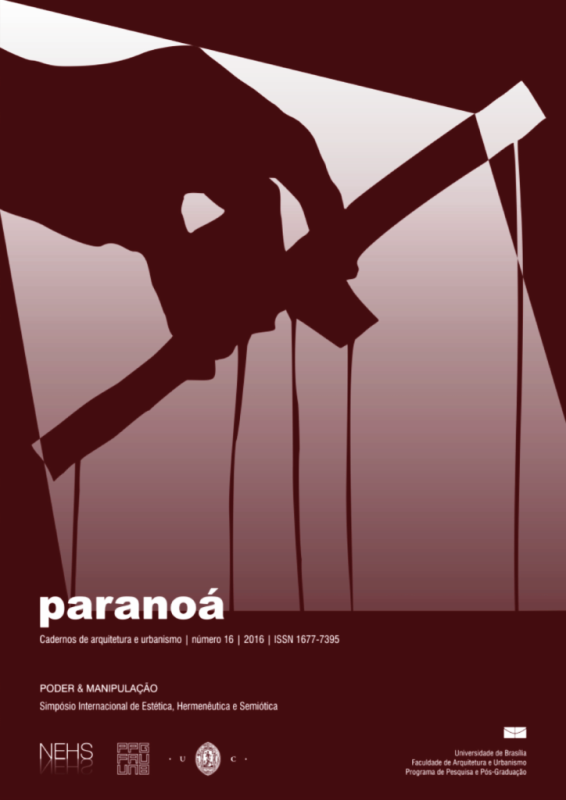Vitruvius, Alberti and power
DOI:
https://doi.org/10.18830/issn.1679-0944.n16.2016.15Keywords:
Vitruvius, Alberti, Ornament, Decorum, RhetoricAbstract
The concept of Vitruvius on the ornament as an element that gives character to the building, and therefore to the city, served as the basis for the treated of Alberti.Both architects understand the ornament as compositional lines that gain legitimacy when they have a utility and a symbolic characterin architecture. Utility can be understood as an ornamental element that also responds to practical needs, such as those that ensure a civic character of the building, contributing to the city’s organization and decorum. Ornaments are theoretically determined by canons of proportion and harmony when they are thought as elements that complete the structural beauty in classical architecture. In practice, ornaments in public buildings have a compelling rhetoric and might function as a domination and legitimation tool for the ruling class.
Downloads
Downloads
How to Cite
Issue
Section
License
Autores que publicam nesta revista concordam com os seguintes termos:
- Autores mantém os direitos autorais e concedem à revista o direito de primeira publicação, com o trabalho simultaneamente licenciado sob a Licença Creative Commons Attribution que permite o compartilhamento do trabalho com reconhecimento da autoria e publicação inicial nesta revista. http://creativecommons.org/licenses/by/4.0
- Autores têm autorização para assumir contratos adicionais separadamente, para distribuição não-exclusiva da versão do trabalho publicada nesta revista (ex.: publicar em repositório institucional ou como capítulo de livro), com reconhecimento de autoria e publicação inicial nesta revista.
- Autores têm permissão e são estimulados a publicar e distribuir seu trabalho online (ex.: em repositórios institucionais ou na sua página pessoal) a qualquer ponto antes ou durante o processo editorial, já que isso pode gerar alterações produtivas, bem como aumentar o impacto e a citação do trabalho publicado (Veja O Efeito do Acesso Livre).















